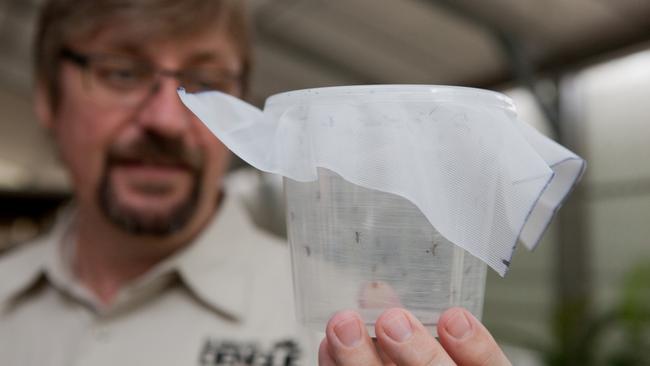World Mosquito Program receives $50 million from Wellcome, Gates
A disease-prevention program that began at Monash University has been awarded $50 million over three years.

A disease-prevention program that began at Monash University and has now spread through much of Asia, the Pacific and South America, has been awarded $50 million over three years.
The Wellcome Trust and the Bill and Melinda Gates Foundation have jointly awarded the funding in an effort to tackle mosquito-borne diseases.
Director of the World Mosquito Program, Monash professor Scott O’Neill, said he hoped the $50m would help the program get ready for the big move from research to implementation and rollout around the world. “Assuming it goes well, we don’t want to have to wait for a long time before it goes to the next step,” he said.
The program tackles the potentially fatal diseases of dengue, zika and chikungunya by introducing naturally occurring bacteria, Wolbachia, into mosquitoes to block their ability to transmit the diseases.
Once released, the Wolbachia-carrying mosquitoes breed with wild mosquitoes, and pass on to the next generation of insects the inability to transmit viruses.
A four-year trial in Townsville found the introduction of the Wolbachia mosquitoes prevented dengue transmission on a citywide scale. A much larger citywide trial in Yogyakarta, in Indonesia, scheduled to end next year, is expected to prove the program’s worth beyond doubt.
Professor O’Neill said the “gold-standard, randomised control trial” in Yogyakarta, which includes 400,000 people in an area where the dengue pressure is extremely high, would draw a line under the research phase of the program.
“Once Yogyakarta is finished, everyone will be happy,” he said.
This bacteria approach to fighting disease is self-sustaining. Once the mosquito populations are established, no further mosquito releases are needed, so it works well in the developing world where funds are short and mosquito-borne disease is rampant. The World Mosquito Program has trials under way around the globe, including in Brazil, Colombia, Mexico, Indonesia, Vietnam, India, Sri Lanka, Fiji, Vanuatu, Kiribati and New Caledonia.
Assuming the results of the Yogyakarta trial prove successful, and the World Mosquito Program moves from research to implementation, Professor O’Neill said he expected a rapid scale-up around the world, with the establishment of regional offices in Panama and Vietnam.



To join the conversation, please log in. Don't have an account? Register
Join the conversation, you are commenting as Logout